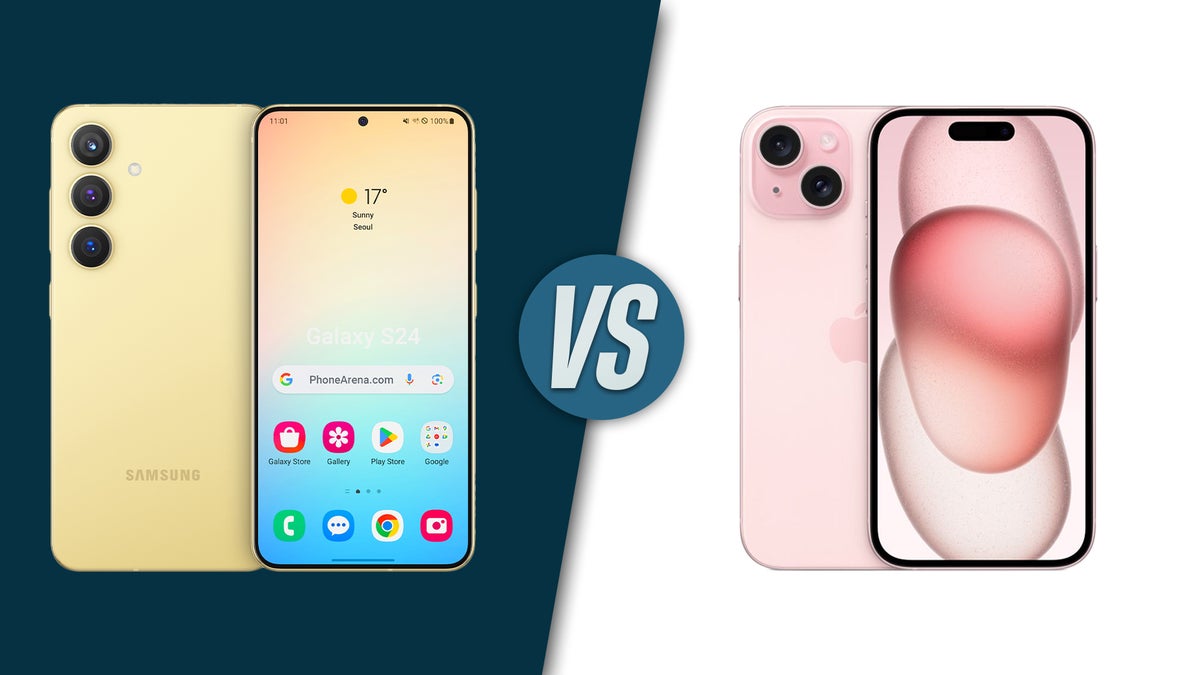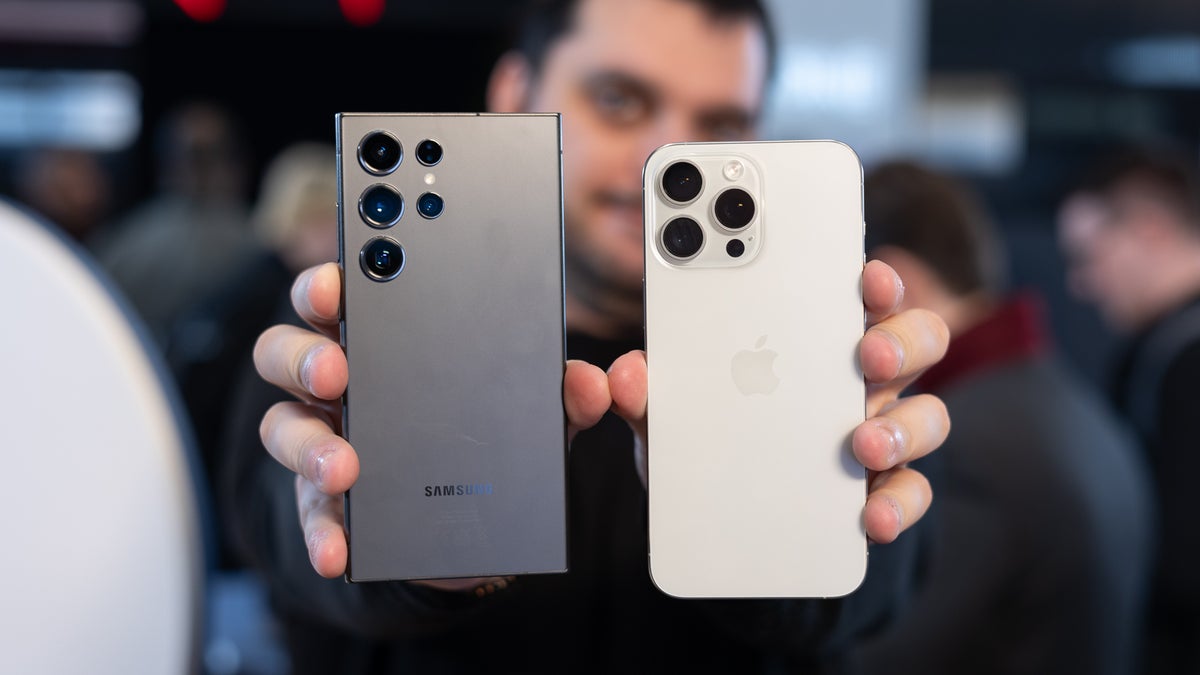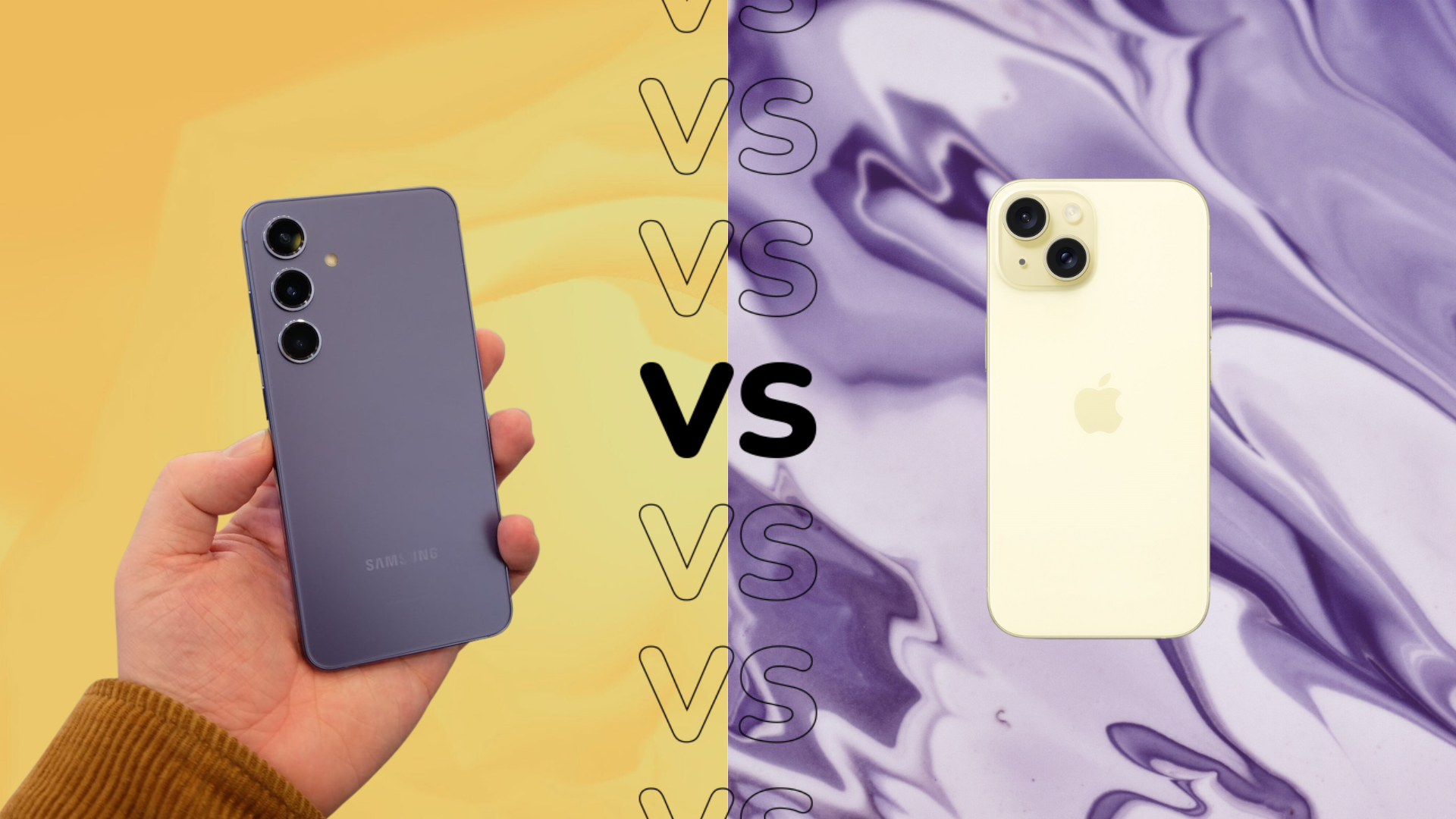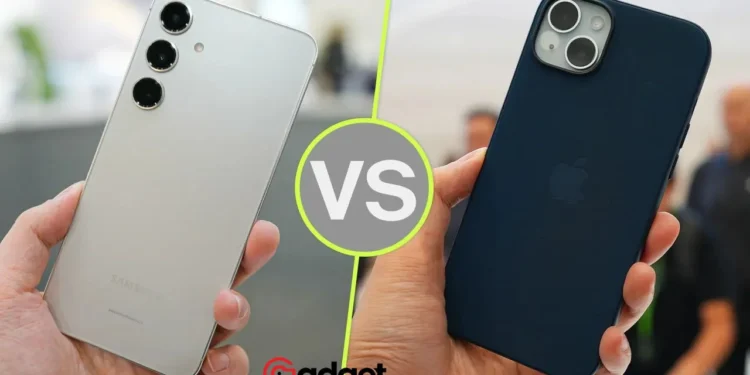As Samsung releases its latest flagship series, Samsung Galaxy S24 vs Apple iPhone 15, has become the headlines of the moment. In the ever-evolving landscape of smartphones, the recent announcement of the Galaxy S24 has sparked a flurry of comparisons with the iPhone 15. These two behemoths of the tech world, renowned for their cutting-edge technology and loyal user bases, offer more than just a phone – they embody a lifestyle choice. This article delves into the nuances of Samsung Galaxy S24 vs Apple iPhone 15.

Samsung Galaxy S24 vs Apple iPhone 15: Processor and Memory
At the core of both devices lie the industry’s finest chipsets – Apple’s A17 Pro and Snapdragon’s 8 Gen 3, ensuring that both the Galaxy S24 and iPhone 15 deliver unparalleled performance. Samsung raises the stakes with 8GB of RAM in its standard models, and a hefty 12GB in the Plus and Ultra versions, catering to those who demand the ultimate in speed and multitasking capabilities.
iPhone 15 Pro Max vs Galaxy S24 Ultra
Which one do you think looks better? pic.twitter.com/ioDuxcGFRq
— Mr Android FHD (@android_fhd) December 24, 2023
Samsung Galaxy S24 vs Apple iPhone 15: A Leap into the Future with Wi-Fi 7
Connectivity is where the Samsung Galaxy S24 truly shines, being the first to embrace Wi-Fi 7, while the iPhone 15 Pro holds its ground with Wi-Fi 6E. This significant advancement in the Samsung Galaxy S24 not only promises faster speeds but also hints at Samsung’s commitment to future-proofing its devices.
Samsung Galaxy S24 vs Apple iPhone 15: AI Technology, The New Frontier in Smartphones
Galaxy S24 is not just a smartphone; it’s a harbinger of the AI revolution. With Google’s collaboration, the S24 series introduces groundbreaking AI features that are set to redefine user interaction.

Samsung Galaxy S24 vs Apple iPhone 15: Circle to Search, Revolutionizing Information Access
The Circle to Search feature in the Samsung Galaxy S24 Ultra exemplifies this AI prowess. This intuitive tool allows users to search for anything instantly, whether it’s an object in a photo or a scene in real life. By simply circling, highlighting, or tapping, Google’s AI springs into action, delivering search results seamlessly. Although Apple’s AI capabilities in object recognition are noteworthy, they fall short of the comprehensive approach that Samsung offers.
Galaxy AI: A Suite of Smart Features
The Galaxy S24’s AI doesn’t stop at search functionalities. It extends to features like Transcript Assist, which leverages speech-to-text technology for translating and summarizing audio recordings, and Generative Edit, a tool for refining and manipulating images with AI precision. These features, currently unparalleled in the Apple iPhone 15, showcase Samsung’s vision for a smarter smartphone experience.
The Apple iPhone 15: Waiting in the Wings for AI Advancements
While the iPhone 15 continues to be a formidable contender with its robust ecosystem and loyal fanbase, the anticipation for AI-centric features in the upcoming iOS 18 is palpable. Rumors suggest a significant AI upgrade, but it remains to be seen how many of these advanced features will be available for the iPhone 15, or if they’ll be reserved for the Apple iPhone 16.

Choosing Your Champion in the AI Era
As we navigate through 2024, the choice between the Galaxy S24 Ultra and the iPhone 15 may well hinge on one’s preference for AI capabilities. For those seeking the cutting edge of AI in smartphones, the Samsung Galaxy S24 Ultra, and perhaps the Google Pixel 8 Pro, stand as the frontrunners. However, for the Apple aficionados, the Apple iPhone 15 Pro remains a symbol of brand loyalty and ecosystem integration.
Galaxy S24’s pre-booking is on and the base price starts at $799.99. Whereas the iPhone 15 is already in the market and the base price starts at $799.
In the grand scheme of things, both Samsung and Apple continue to push the boundaries of what a smartphone can be, each in their own unique way. The Samsung Galaxy S24 vs. Apple iPhone 15 debate is more than a comparison of features; it’s a reflection of the personal choices we make in the digital age.










